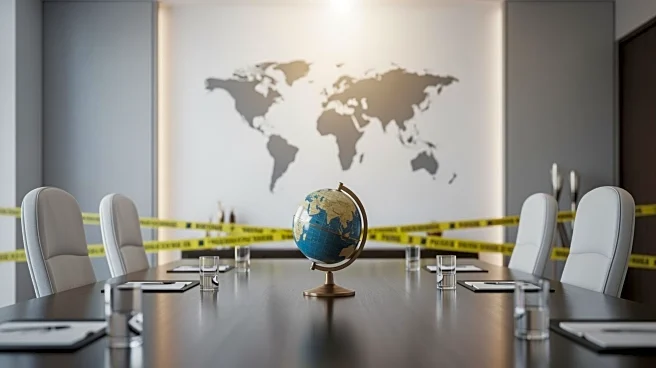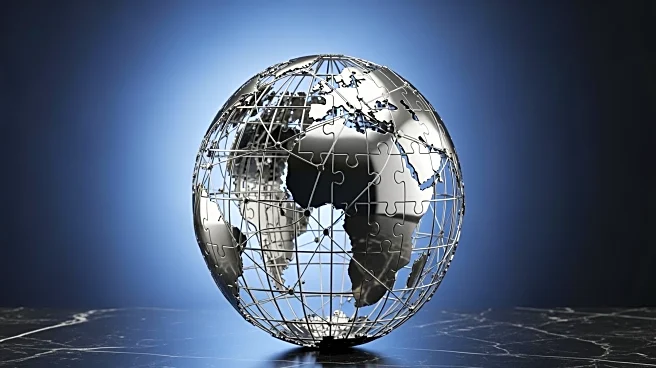What's Happening?
President Donald Trump and Brazilian President Luiz Inácio Lula da Silva met in Kuala Lumpur, Malaysia, during the ASEAN summit to discuss the possibility of a trade deal between the United States and Brazil.
The meeting comes after the Trump administration imposed a 40% tariff on Brazilian products, citing Brazil's policies and the criminal prosecution of former President Jair Bolsonaro as an economic emergency. Bolsonaro was recently convicted of attempting a coup after losing his reelection bid in 2022 and sentenced to 27 years in prison. Lula expressed optimism about reaching a trade agreement, presenting Trump with a document arguing against the tariff hikes. Trump indicated a willingness to negotiate, suggesting that a deal could be beneficial for both countries.
Why It's Important?
The imposition of tariffs on Brazilian products by the U.S. has significant implications for international trade and economic relations between the two countries. The tariffs have affected the global beef trade, increasing prices in the U.S. and altering trade dynamics. A potential trade deal could alleviate these tensions and foster better economic cooperation. The situation also highlights the geopolitical complexities involving Brazil's internal politics and its impact on international relations. The resolution of these tariffs could benefit both nations economically and politically, potentially stabilizing trade relations and reducing economic strain.
What's Next?
Following the meeting, both countries have agreed to have their teams meet immediately to discuss solutions to the tariffs and other related matters. The negotiations aim to address the sectors affected by the tariffs and potentially suspend them during the negotiation process. The outcome of these discussions could lead to a reduction or removal of tariffs, impacting trade dynamics and economic relations. The U.S. and Brazil will continue to work towards a resolution, with the hope of concluding negotiations in the near future.










